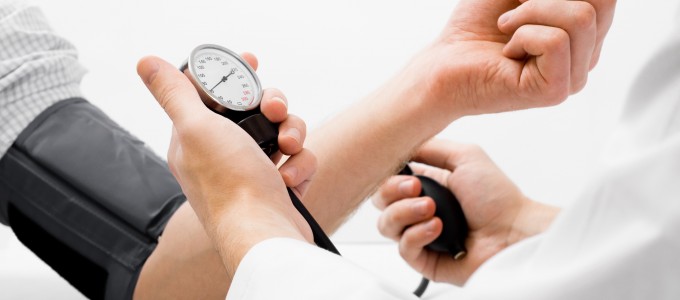Managing High Blood Pressure

One of the biggest health risks in developed nations today is high blood pressure. The causes of high blood pressure are well known, yet success in reducing high blood pressure levels remains elusive for many. One reason for this is the Western diet, which consists almost entirely of highly processed foods with artificially amped up flavours, colours and packaging. Many people never eat a vegetable or fruit in its natural form, thus avoiding healthy opportunities to add naturally occurring fibre, omega-3 fatty acids, vitamins and minerals to their daily diet. Even worse, many of us have become so accustomed to the artificially high levels of sweetness and saltiness in processed foods, that we can no longer appreciate the flavour of a celery stalk, a tomato, a pepperor an orange.
Blood Pressure Levels
So what is high blood pressure, and how dangerous is it? When your doctor takes a blood pressure reading, she is measuring the force with which the blood is pushing against the walls of your blood vessels. If the heart has to work too hard to carry your blood through your body, you have high blood pressure, also called hypertension. Unfortunately, hypertension contributes to hardening of the arteries and heart failure. A healthy person will have a blood pressure reading of less than 120 over 80. Prehypertension is at 120-139 over 80-89. If your blood pressure reaches 160 and above, over 100 and above, you have Stage 2 high blood pressure.
Although the causes of high blood pressure are not entirely understood, there are many factors that can contribute to developing high blood pressure. If you smoke, are overweight, do very little exercise, have too much salt in your diet, drink too much alcohol or experience a lot of stress every day, you most likely have high blood pressure. There are certain folks who get it purely due to genetic factors (a family history of high blood pressure), or due to chronic kidney disease or adrenal and thyroid disorders.
Help Control or Lower Your Blood Pressure
Unless you have a family history of high blood pressure or certain medical conditions, you can help control —and even lower — your blood pressure through weight loss, regular exercise and healthy eating habits. These include avoiding high salt foods, limiting your alcohol intake, and eating whole foods rather than high processed and “junk” foods. Focus on potassium rich foods, like fruits and vegetables, and avoid fried foods. Deep-fried and breaded foods are both highly salty and high in saturated fats, and can contribute to hypertension.
Share Your Thoughts!